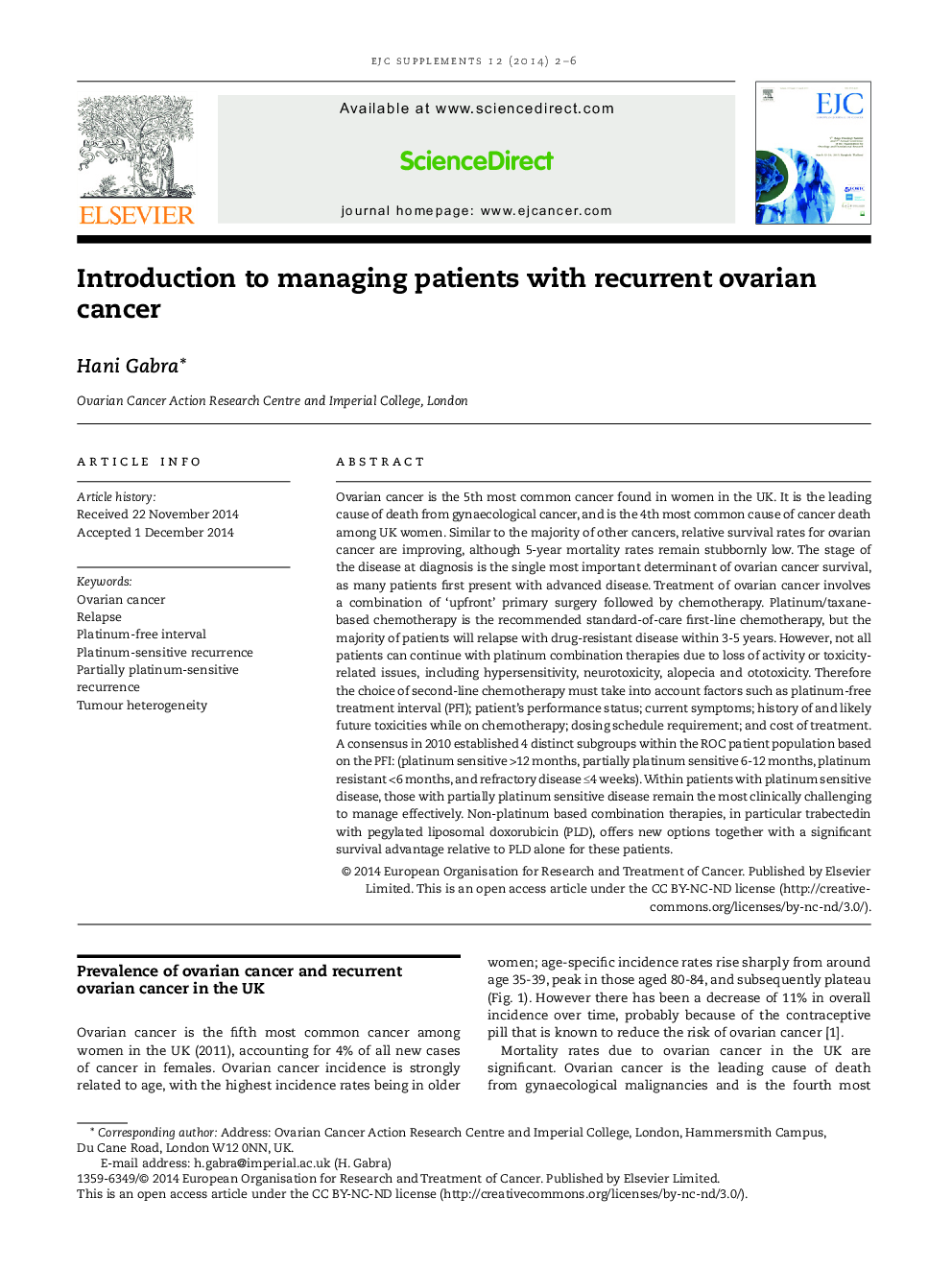| کد مقاله | کد نشریه | سال انتشار | مقاله انگلیسی | نسخه تمام متن |
|---|---|---|---|---|
| 2127766 | 1547588 | 2014 | 5 صفحه PDF | دانلود رایگان |
Ovarian cancer is the 5th most common cancer found in women in the UK. It is the leading cause of death from gynaecological cancer, and is the 4th most common cause of cancer death among UK women. Similar to the majority of other cancers, relative survival rates for ovarian cancer are improving, although 5-year mortality rates remain stubbornly low. The stage of the disease at diagnosis is the single most important determinant of ovarian cancer survival, as many patients first present with advanced disease. Treatment of ovarian cancer involves a combination of ‘upfront’ primary surgery followed by chemotherapy. Platinum/taxane-based chemotherapy is the recommended standard-of-care first-line chemotherapy, but the majority of patients will relapse with drug-resistant disease within 3-5 years. However, not all patients can continue with platinum combination therapies due to loss of activity or toxicity-related issues, including hypersensitivity, neurotoxicity, alopecia and ototoxicity. Therefore the choice of second-line chemotherapy must take into account factors such as platinum-free treatment interval (PFI); patient's performance status; current symptoms; history of and likely future toxicities while on chemotherapy; dosing schedule requirement; and cost of treatment. A consensus in 2010 established 4 distinct subgroups within the ROC patient population based on the PFI: (platinum sensitive <12 months, partially platinum sensitive 6-12 months, platinum resistant <6 months, and refractory disease ≤4 weeks). Within patients with platinum sensitive disease, those with partially platinum sensitive disease remain the most clinically challenging to manage effectively. Non-platinum based combination therapies, in particular trabectedin with pegylated liposomal doxorubicin (PLD), offers new options together with a significant survival advantage relative to PLD alone for these patients.
Journal: European Journal of Cancer Supplements - Volume 12, Issue 2, December 2014, Pages 2–6
